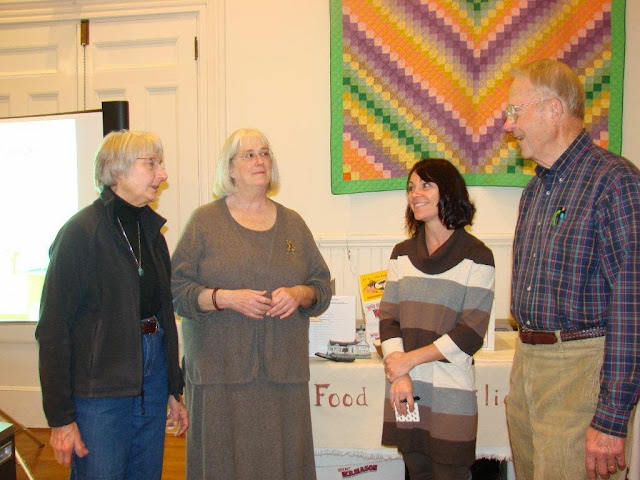We all know someone, or someone whose loved one, is dealing with depression. Severe depression is debilitating, but there are levels of depression, and even a mild case such as being down in the dumps can take its toll. This was the focus of To Your Health's latest offering, “How to Keep the Holidays Happy – Managing the Holiday Blues.” Torrey Harrison, LCSW, and Stephanie LeBlanc, LCSW, both from Tri-County Mental Health, were the presenters.
The symptoms of depression, whether minor or severe, include: feelings of sadness or unhappiness; changes in appetite (eating too much or not enough); loss of interest or pleasure; lack of energy, oversleeping or insomnia; and irritability, frustration, agitation. Harrison and LeBlanc said that one in ten Americans are impacted by depression, either personally or through a loved one, but that 80% of people struggling do not seek help.
Harrison and LeBlanc also made the following points during their presentation:
- As with any medical condition, if you are experiencing a major disruption to your life, talk with your doctor. Medication may be in order, but there are other avenues to explore as well. Many people find help through cognitive/behavioral therapy. Talking with a non-judgmental third party can be beneficial. Improve your general wellness level through physical and social activity. Exercise and eat a healthy diet to improve your sleep patterns. All of these can help you become more aware of what triggers your depression, and help you to cope.
- The holiday season – from Halloween to Valentine's Day – just happens to coincide with the darkest 100 days in the northern climates. Many people suffer from a mild depression known as Seasonal Affective Disorder (SAD) during this time. It is more common in women 20 – 55 years old, less common for men. If you did not suffer from SAD when you were younger, it is less likely you will experience it as you get older.
- The symptoms of SAD are not at the level of intensity as those of depression, but they are the same: loss of energy and interest, feeling moody or irritable, change in appetite (often an increased craving for carbohydrates), difficulty concentrating and accomplishing tasks. All are brought on by short days and decrease in light.
- With SAD there is no one thing that will help everyone. It is important to find things that work for you. Many people find that using full-spectrum lights at home or at work greatly improves their well-being. Known as “happy lights,” these are readily available. Taking extra vitamin D or St. John's wort is of benefit to some. If you know you experience a mood dip in October, plan things to look forward to during the dark season. Try to stay in the moment of what's happening now. Be realistic – do you really need to make four pies for Thanksgiving? Reach out and connect to others. Do something for someone else – it really does help you feel better! And don't forget to take time out for yourself, even just a few minutes. Avoid getting too busy.
- With family, decide what the holidays mean to you, and keep that in mind. Buy into what you want to do, not what others expect of you. Identify points of possible tension, and work to avoid them. Laugh! Have a favorite joke at the ready. And if you can't laugh, force yourself to smile. Smiling will make you feel better.
The session concluded with a graphic of the Eight Dimension of Wellness:
- Physical – healthy patterns, eating, exercise, imbibing, sleeping
- Emotional – awareness, expressing, managing
- Social – positive supports, regular contact
- Occupational – sense of purpose and meaning in everyday life
- Intellectual – activities that are creative, learning something new
- Financial – making conscious spending decisions, planning and preparing
- Environmental – pleasing surroundings support physical/mental health
- Spiritual – connect with something greater than one's self
 |
| Lida Iles, Torrey Harrison, Stephanie LeBlanc, and Bob Iles photo R. Tifft |
For more information about Western Mountains Senior College visit our website at http://sad44.maineadulted.org/western_mountains_senior_college